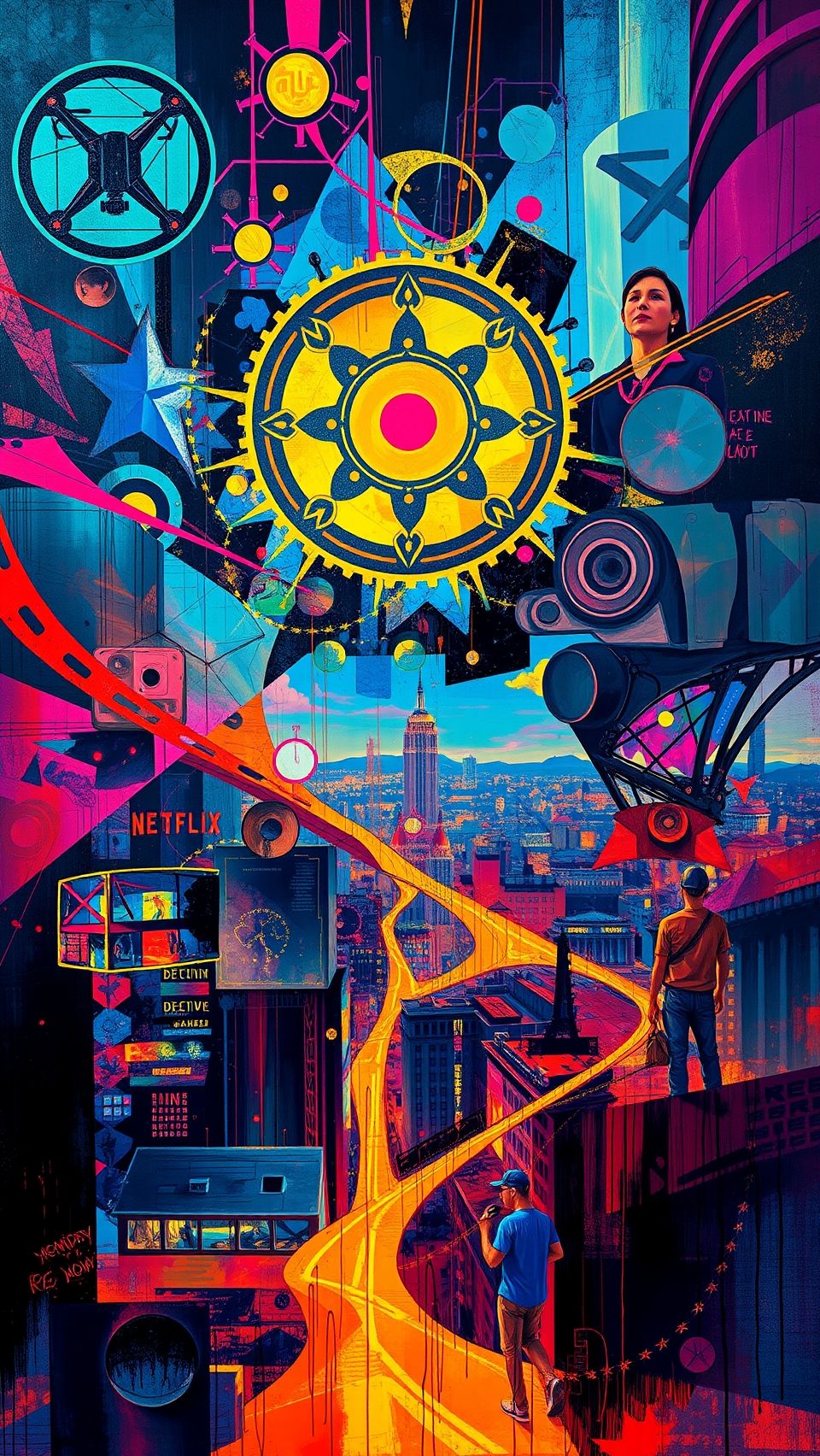05. April 2025
Dji Pioneers Aerial Cinematography With First Netflix-Approved Drone

The DJI Inspire 3 has made history as the first Netflix-approved drone, marking a significant milestone for aerial cinematography. This achievement represents a paradigm shift in how drones are perceived in high-end productions, with the DJI Inspire 3’s capabilities and integration into professional workflows paving the way for a new era of aerial filmmaking.
The inclusion of the DJI Inspire 3 in Netflix’s approved 4K Originals production list signifies a fundamental transformation in how drones are utilized in premium content creation. While aerial platforms have traditionally been relegated to establishing shots and supplementary footage due to limitations in image quality, codec compatibility, and color science, the DJI Inspire 3 shatters these constraints.
At the core of this advancement is the Zenmuse X9-8K Air, a full-frame camera module that delivers exceptional imaging capabilities. The system supports internal recording of up to 8K/25fps in CinemaDNG and 8K/75fps in Apple ProRes RAW, all built around DJI’s latest image processing system, CineCore 3.0. In lab testing, the camera demonstrated dynamic range performance on par with or better than consumer-grade full-frame cameras, with measurements showing more than 14 stops of dynamic range.
The Inspire 3’s imaging capabilities represent a quantum leap forward for aerial cinematography. The Zenmuse X9-8K Air features a 35.4 Megapixel full-frame sensor with a dual native ISO of 800/4000 when recording up to 29.97fps, shifting to 320/1600 when shooting at higher frame rates. This sensitivity range enables unprecedented low-light performance for aerial platforms, allowing filmmakers to capture pristine footage during challenging lighting conditions such as golden hour or night scenes.
The system works with DJI’s proprietary DL mount, allowing cinematographers to utilize multiple lens options, including 24mm, 35mm, and 50mm prime lenses. DJI has also introduced an 18mm f/2.8 ultra-wide lens specifically designed for aerial cinematography, with plans to release additional telephoto options in the future.
Color science plays a critical role in high-end content creation, and the DJI Inspire 3’s camera system is designed to deliver exceptional color accuracy and consistency. The Zenmuse X9-8K Air features a color science system that ensures accurate representation of colors, with precise control over white balance, exposure compensation, and color grading.
The drone’s advanced autopilot system allows for seamless integration into professional workflows, with features such as timecode synchronization, GPS tracking, and obstacle avoidance. The drone supports timecode synchronization through a 3.5mm port, allowing crews to sync footage between air and ground cameras, significantly simplifying the editing process when dealing with multiple camera sources.
The drone also utilizes DJI PROSSD 1TB media with impressive write speeds up to 1,100 MBps and read speeds up to 900 MBps, ensuring fast and reliable storage solutions for professional needs. The drone’s video transmission capabilities represent another significant advancement. Inspire 3 incorporates DJI’s O3 Pro transmission system, supporting simultaneous video transmission from both the gimbal camera and FPV camera at 1080p/60fps with latency as low as 10ms.
This approval also reflects broader trends in content creation, where production teams increasingly seek versatile, compact systems that can deliver premium results without the logistical overhead of traditional cinema packages. The DJI Inspire 3’s comprehensive feature set positions it at the intersection of technical capability and operational efficiency—precisely where many productions now aim to operate.
For cinematographers and directors, the creative implications may be even more significant. The ability to move a cinema-grade camera through three-dimensional space with precision opens new storytelling possibilities. As productions become more familiar with the system’s capabilities, we’re likely to see innovative shot designs that blend traditional cinematography techniques with the unique perspective offered by aerial platforms.
The Netflix approval validates DJI’s vision for professional drone cinematography—not as a specialized niche, but as a core component of modern filmmaking. As more productions adopt this approach, the visual language of film and television will inevitably evolve, shaped by the new creative possibilities these systems enable.
With its exceptional imaging capabilities, advanced autopilot system, and integration into professional workflows, the DJI Inspire 3 represents a paradigm shift in how drones are perceived in high-end productions. As more productions adopt this approach, we can expect to see innovative storytelling possibilities emerge from the intersection of traditional cinematography techniques and aerial platforms.
The future of drone-based filmmaking looks bright, with the DJI Inspire 3 leading the way. As production teams continue to push the boundaries of what is possible with these systems, we can expect to see even more impressive results in the years to come.